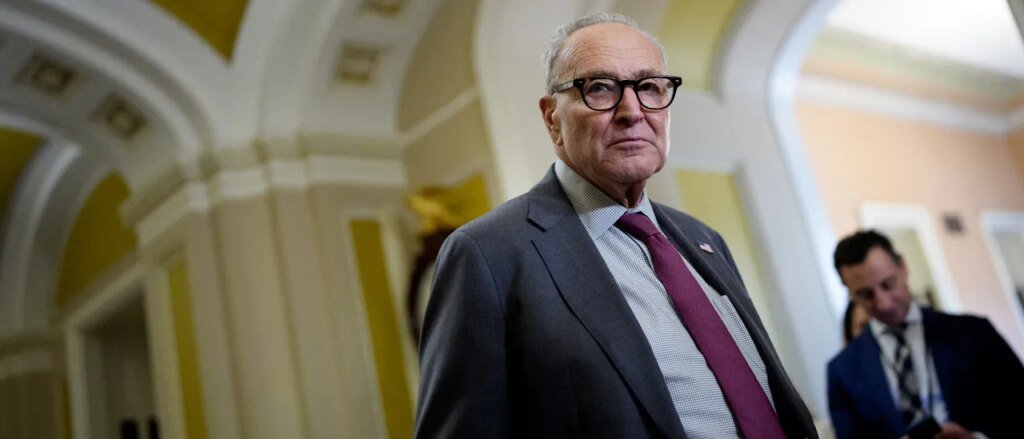“Every day is better for us,” remarked Senate Democratic Leader Chuck Schumer during a recent interview where he discussed his party’s ongoing government shutdown. He expressed a level of satisfaction about the situation.
Prior to this, a super PAC associated with Schumer released a memo claiming that the Democrats were “winning” in the shutdown conflict. They warned that easing pressure on Republicans would be unwise. The PAC sees this standoff as a critical moment to shape the narrative for the 2026 midterm elections, which they believe will revolve around issues like health care and the economy.
While countless Americans are concerned about making ends meet without paychecks, Democratic strategists are seemingly calculating how to wield this situation to their advantage in upcoming elections. Schumer’s supporters have advised him to remain steadfast in his resistance to compromise. They cautioned against “vague Republican promises,” emphasizing the importance of portraying opponents as chaotic, while their own campaign ads highlight a version of “affordable health care.”
Though Schumer and his supporters might view their political strategy as a victory, many citizens are recognizing the dysfunction within Washington, which seems increasingly intentional. For Congressional Democrats, the priority appears to be winning the message war over finding a resolution to the government shutdown.
It’s becoming harder to deny that this ongoing crisis is largely influenced by progressives in Congress prioritizing political maneuvering over serving the American public. This situation reflects poorly on the Democratic Party, as most citizens are against a government shutdown. A significant percentage of Americans oppose federal health benefits for illegal immigrants, but Democrats opted to keep the government closed instead of passing a comparable funding bill they previously supported. This decision seems to cater more to their ideological base than to the nation at large, as politicians like Schumer fear challenges from the far left in the upcoming midterms.
Conservatives argue consistently for reducing waste, keeping the government functional, and safeguarding taxpayers. On the contrary, progressives appear more inclined to allocate taxpayer funds for health care for illegal immigrants than to ensure that essential services, including compensation for public servants, remain uninterrupted.
The current situation is indeed troubling as the shutdown extends. Those dependent on government pay and benefits are increasingly anxious. Veterans face barriers in accessing vital resources, military personnel and air traffic controllers continue without pay, and low-income mothers worry about putting food on their tables due to potential underfunding of programs like WIC.
Given this context, it’s particularly frustrating that a Senate Majority PAC memo suggested prolonging the shutdown, anticipating it would provide a political edge in future elections. This behavior is more indicative of political theatrics than genuine leadership.
Congress should prioritize easing the shutdown, ensuring troops are compensated, borders are secured, and vital services reach those in need. It’s disheartening to see nearly half of Congress treating this situation as merely a political maneuver when immediate action is essential.
Across the nation, conservative state leaders demonstrate effective fiscal management. Many states are managed by officials who successfully balance budgets, fund education and infrastructure, and ensure payrolls are met, avoiding the turmoil characteristic of Washington. Their example offers a lesson in living within financial means, especially with federal debt nearing $38 trillion.
The way forward is clear and doesn’t require extensive polling to guide action. It’s fundamentally about funding the government: paying our troops, securing our borders, and respecting taxpayers.
There’s no justification for maintaining the shutdown when both parties have demonstrated capacity for agreement on fundamental issues. A considerable majority in Congress has already expressed support for a clean continuing resolution, which is akin to the funding measure that received broad bipartisan backing earlier this year. The differing viewpoints now lean more toward politics than policy.
It’s time to break free from the grip of activist politics in Washington and restore a functioning government. Americans are weary of high-stakes games; they want leaders who prioritize them over political headlines.







